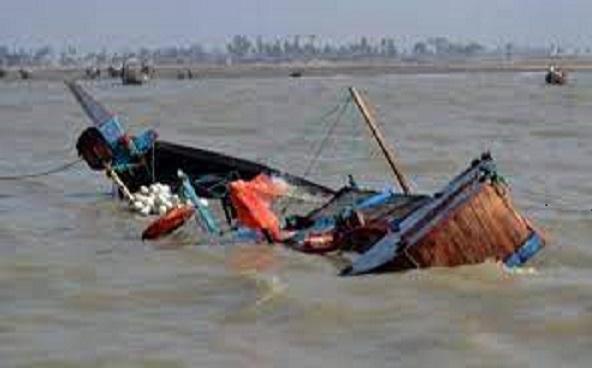- Experts blame policy inconsistency, infrastructure deficit, others, as obstacles to water transport efficiency in Nigeria
The National Inland Waterways Authority (NIWA), has attributed the loss of over 106 lives in the Kwara boat tragedy on 12 June 2023 to inappropriate night travel, gross overloading, and misconduct.
In his condolence message to the families that lost loved ones, image maker of the National Inland Waterways Authority (NIWA), Mr. Jibril Darda’u, in a press statement noted that: “This accident was clearly an unfortunate and avoidable one.’
According to the NIWA spokesman, “Preliminary investigations through our Area Manager in Minna/Kwara Area Office revealed that the boat driver and wedding guests were on the ill-fated voyage about 2:30am, which speaks volumes about the disregard for the laws regulating Inland Waterways navigation. Furthermore, for a wooden boat to have allegedly been carrying more than 200 passengers at once without using life jackets and sailing in the night was certainly gross-overloading and misconduct.”
Also, NIWA management, through its General Manager, Corporate Affairs, said it is deeply saddened by the boat mishap that occurred along the Jebba Lake channel in the Lafiagi-Patigi Local Government Area of Kwara State.
It promises that in accordance with extant laws and regulations, it will investigate the “callous incident and prosecute those found culpable.”
“NIWA as an Authority will not fold its arms and allow reckless boat operators flaunting our safety guidelines and killing innocent commuters,” the statement added.
In the meantime, Kwara State Police Command has given fresh insight into what actually took place, adding that 106 persons died.
According to the Kwara Police spokesman, SP Okasanmi Ajayi: “The boat was said to have conveyed about 250 people from a village called Gboti via Patigi after a wedding ceremony to Ebu Village and Dzakan Village, all within Patigi’s local government area.
“On leaving the shore, one part of the boat by the engine side collapsed where water penetrated the boat, which ultimately led to the boat capsizing. All efforts to draw the attention of the villagers hosting the wedding ceremony for assistance by the persons in the boat proved abortive, leading to the deaths of about one hundred and six (106) people.
“Among the casualties were people from Ebu Village with 61 casualties, Dzakan Village with 38, Kpada Village with 4 dead, and three (3) other casualties from Kogi State, putting the total number of casualties at one hundred and six (106) and the total number of rescued people at about one hundred and forty-four (144).
The Police Chief in the state further directed that the policemen on the rescue operation should continue in the effort while providing security for the rescued victims of the accident until they are fully recovered from the shock and trauma of the accident and handed over to their families.
A few months ago, the Federal Government reiterated its commitment to reactivating the nation’s inland waterways transportation to revive trading activities and boost the economy.
Then Secretary to the Government of the Federation (SGF), Mr. Boss Mustapha, said this at the unveiling of the Navigational Charts of the power River Niger on Thursday, in Abuja.
Mustapha said that there was need to get back the mode of transportation on the inland waterways, so as to rekindle the trading activities that used to exist along the river Niger and Benue.
But in Nigeria, policy inconsistency, duplication of regulatory functions, infrastructure deficit, insecurity, inadequate human capacity, and low investment are among critical factors highlighted as obstacles affecting the growth of inland water transportation and associated businesses in the country.
Managing Director of NIWA, Dr. George Moghalu has suggested legislation on the restriction of movement of classified and heavy goods on roads, particularly within destinations that can be accessed by water, which he said will create a cabotage trade hub that will drive the Cabotage Act with sub-optimal implementations derivable from effective development and operationalisation of the country’s vast inland waterway assets.
Additional reports from Everyday.ng
a
a


